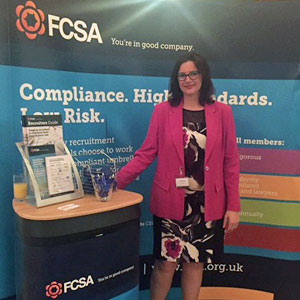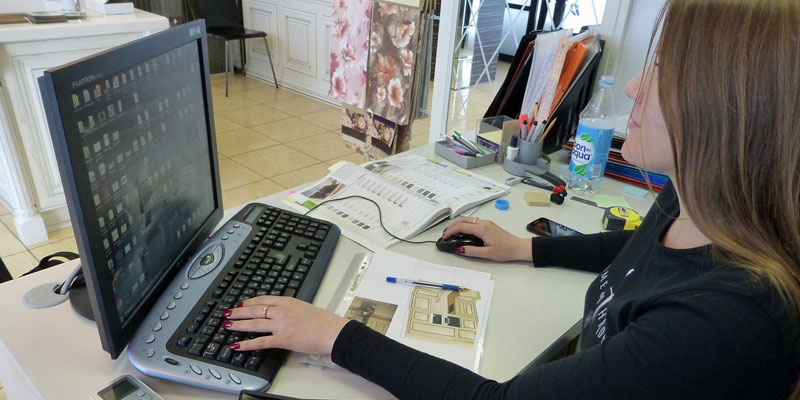Julia Kermode is Chief Executive Officer at the FCSA (Freelancer & Contractor Services Association), a trade association for professional employment service providers (umbrella, accountancy, payroll), FCSA works to support the sector and the flexible workforce. Prior to this Julia held CEO posts at the Bone Cancer Research Trust and IMPACT Alcohol & Addictions Services, as well as senior leadership roles at the Society of Orthopaedic Medicine and the British Society for Rheumatology.

“…Leaving the EU will undoubtedly bring a period of uncertainty and as we have witnessed in the run up to the referendum, demand for contractors has been high and I see this demand increasing, particularly if the rules on immigration tighten up…”
From practical science to executive leadership
I studied Biology with Molecular Genetics at the University of Warwick, and some of what we did was weird and wonderful. I was at the cutting edge of science with my whole future ahead of me and everything was great until almost the end of my third year when I realised that while I might LOVE science, I couldn’t actually DO it.
It was my dissertation that shattered my dreams. Spending every day working in a lab, I was working on a six week project and my aim was to discover something very important about the genetic basis of hyaluronic acid in xenopus – or frogs to use the less exotic name!
The minutiae of the practical work bored me. But I never lost touch with the overall aim, which kept me going. I really wanted to find out something very important but at the end of it all I found out nothing. I was just not cut out for the practical side of science. I could come up with theories, but I was the wrong person to test them.
So, armed with a degree in biology I got my first job at a medical science association and I thrived on the challenges I faced. Since then I have gone on to hold a number of management and chief executive positions at a variety of trade associations and I love my job.
I enjoy being accountable for the success of the organisations I lead, and flying the flag for the sector, particularly in my current role as the contribution that the flexible workforce makes to the economy is enormous but widely acknowledged. The beauty of working at trade associations is representing members, creating dialogue with policymakers, and supporting the industry to go from strength to strength.
Remit of the FCSA and my role within it

By that, I mean our members are the accountancy firms and umbrella employers that support freelancers and contractors who have chosen to work in this way as an alternative to permanent employment. We work hard to raise standards and ensure that our accredited members protect the interests of contractors so that they have peace of mind that they are receiving best advice regarding their financial affairs.
We have seen numerous legislative changes in recent years, and we work hard to lobby Government to avoid unintended consequences so that our sector is fairly treated. In my role as chief executive no two days are ever the same – I could be meeting members of the Treasury to discuss tax issues one day, talking to journalists about hot topics and key issues another, presenting to an audience of recruitment professionals to give them a steer on best practice or chairing a board meeting with members. There’s never a dull moment.
Difference between a ‘freelancer’, a ‘contractor’ and someone who is ‘self-employed’
Freelancers and contractors are self-employed workers who take on projects for clients but they tend to work quite differently and are usually associated with different industries.
Freelancers are self-employed workers who usually work from home or their own offices and work for a number of different clients often simultaneously. The term freelance is a name used to describe how such a professional works.
Contractors are also self-employed workers, so just like freelancers, they are also responsible for sorting out their own tax bills and NI [National Insurance] contributions. From a tax perspective, there is no real difference between a freelancer and contractor but in practice a contractor tends to work for one client full-time for a set period of time, often from a client’s office.
Some freelancers and contractors are registered as sole traders, while others operate through their own limited companies.
Benefits from using professional employment service providers
Any freelancer or contractor can decide to operate through an umbrella company. It is particularly beneficial if you are just starting out as a contractor because the umbrella firm employs you, whilst also enabling you to carry out a series of temporary assignments for various end-hirers.
You receive all benefits of employment, statutory rights, pension etc., and work for various clients whilst having all of your tax and NI paid centrally by one employer. It means that you don’t need to do the dreaded self-assessment tax return at the end of the year, as the umbrella firm has taken care of that for you.
If you work for several different clients simultaneously, e.g. as a supply teacher at five different schools in one week, then the umbrella firm consolidates your pay from all of them into one single payment. The continuity of employment is also beneficial for obtaining mortgages or other financial products.
Not all of our members are umbrella firms – a large number are accountancy providers that specialise in supporting contractors and interims. Many professional contractors work through their own limited company, which brings with it certain legal and financial responsibilities of being a director and running your own company. This is complex and not suitable for everyone, so our members provide best advice as to what is appropriate for individual circumstances.
As experts in the financial nuances of working as a freelancer, you can be assured that an FCSA accountant is well placed to support you with their specialist knowledge.
The rise of the ‘gig economy’ for women
The ‘gig economy’ has firmly entered everyday parlance and has become a catch-all term for anyone from Uber taxi drivers to freelance professionals, from highly-skilled sought after talent that is relatively well paid and works on a flexible basis to someone on a temporary, fixed term or zero hours contract.
It is still early days for the gig economy, particularly in the UK, but research by PwC suggests that by 2020 it will be worth more than £2 billion in the UK alone. Today there are some 4.7m people working on a self-employed basis in the UK, which is 15% of all UK employees.
For many it is a positive choice to work in a different way to permanent employment, it offers much more flexibility and freedom, opportunity to take control of work-life balance by choosing who to work for and when, and potentially more job satisfaction than being permanently employed.
We are seeing employer attitudes changing, and recognising an increasing range of benefits that come from engaging a flexible workforce:
- Enabling businesses to be agile;
- Enabling firms to scale up (and down) according to demand;
- Enabling new projects to be undertaken and businesses to grow;
- Giving firms the ability to accept / pursue new contracts;
- Giving access to niche specialist skills;
- Giving firms the ability to diversify their business.
Freelancing is becoming an extremely attractive option for women and today there is a 60/40% (men/women) gender split in the freelance workforce (in 2008 it was 62/38%) so the increasing number of women is pleasing to see. It is especially appealing to those who are struggling to smash the corporate glass ceiling, or with children to look after.
Maximising your income generation prospects in an increasingly uncertain employment market

It is possible that some workers from the EU currently employed in the UK may look to work elsewhere, which could mean that there are gaps for employers to fill. It is also possible that firms will need specialist skills on a temporary basis to enable them to plan for the implications of the UK leaving the European Union.
We have seen significant impact on the stock market since the referendum decision was announced, and some concern regarding sectors traditionally reliant on the migrant workforce, such as construction. However, it should be borne in mind that exit will not be instant, stability is needed and now more than ever it is important to ensure that firms have the right skills in place.
Whichever way you look at it, I am certain that there will be increased demand and opportunities for freelancers and contractors, as once again they play a critical role in stabilising the UK economy. Don’t forget that there will be no quick changes to migration rules, so right now we can continue benefiting from freedom of movement to get the right skills into businesses, whether that is from the UK or the EU.
The flexible workforce is naturally resilient, and I am sure many will seize opportunity from the UK’s decision to leave the EU. Their prospects look good as companies will be more cautious to commit to hiring full time employees and will choose to hire talent on tap, on an as-needs basis.
The flexible workforce – more critical than ever during times of economic uncertainty
The next few weeks are going to be busy ones for me and FCSA as we are in the throes of a consultation period with HMRC [Her Majesty’s Revenue and Customs]. Government is considering new rules which could result in freelancers working in the public sector being taxed as employees, but without any of the statutory benefits. We are very concerned because it will make the public sector less attractive to the flexible workforce, and current skills shortages within health and teaching are likely to be exacerbated as a result.
During these times of economic uncertainty, the flexible workforce is more critical than ever, and we are lobbying hard to avoid it being destabilised.
The consultation makes it very clear that employment rights will be outside the scope, which means that an individual will be paying tax as an employee but will not automatically have the corresponding statutory employment rights. This is unfair, unethical and fundamentally wrong.
The implications of the proposed changes will be significant – the new legislation could see contractors falsely put on the payroll and taxed at a higher rate when they shouldn’t be, or worse, that freelancers will be discriminated against as hirers choose alternatives to fulfil their staffing needs.
It is a no win situation in an already stretched public sector that relies on temporary workers. Government and policymakers frequently wax lyrical about the value of the flexible workforce, but this is not demonstrated by their actions. Like I say, busy and challenging weeks ahead!
https://twitter.com/JuliaKermode





